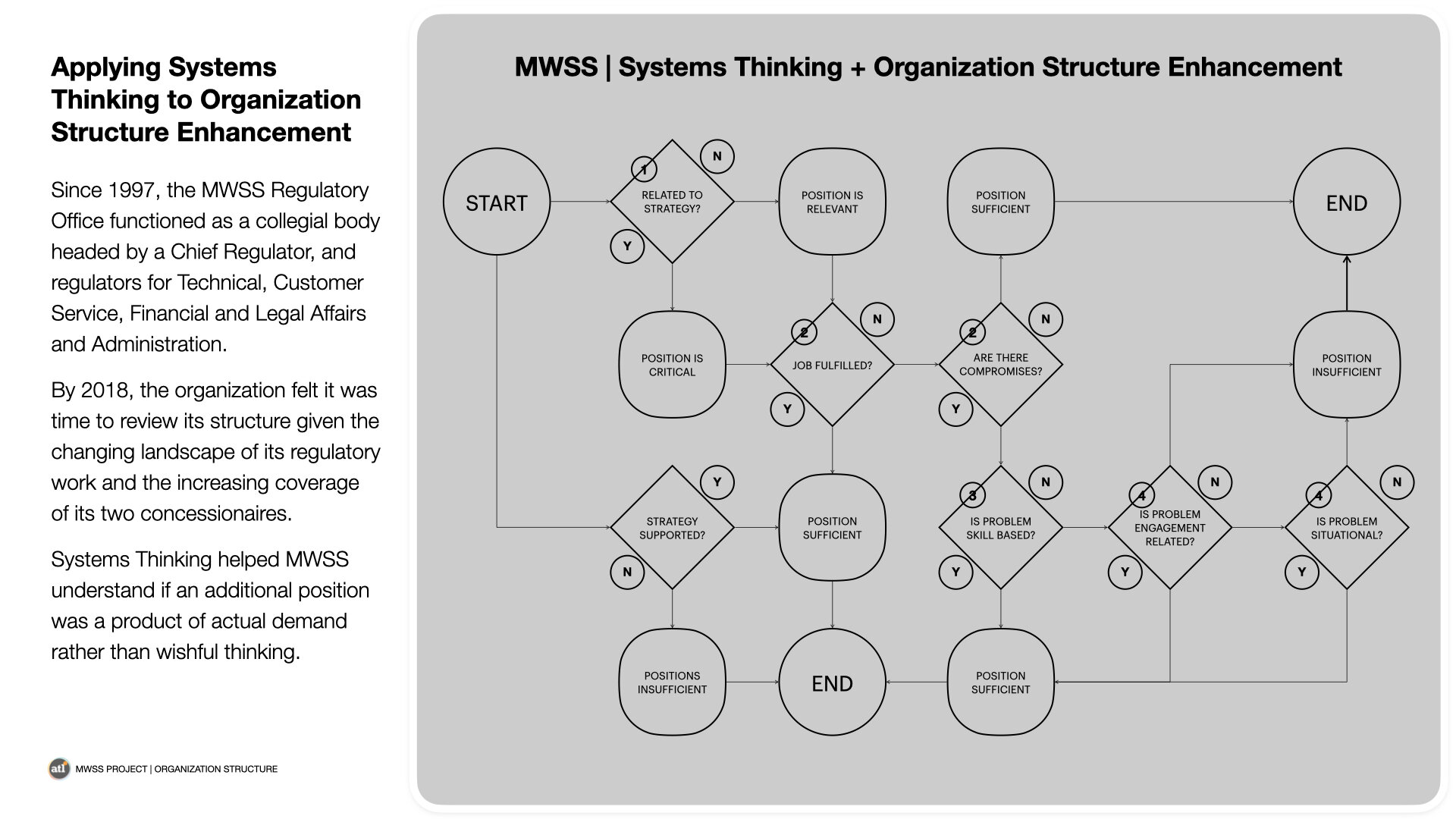Creating Conditions for Organization Success
The MWSS Regulatory Office is mandated to monitor the Concession Agreement with Maynilad and Manila Water. It reviews, monitors and enforces rates and service standards, arranges and reports regular independent audits of the performance of the concessionaires; and monitors their infrastructure assets. Since 1997, the MWSS Regulatory Office functions as a collegial body composed of five members headed by the Director or Chief Regulator, and regulators for Technical, Customer Service, Financial and Administration and Legal Affairs. In 2018, the organization felt it was tie to review its structure given the changing landscape of its regulatory work and the increasing coverage of its two concessionaires.
The study was limited to a two month timeframe. As such, research was limited to methods such as interviews, quick surveys and brief meetings. Four sources of information used in this study – Strategic Planning + Execution Card Play, Big Box Canvass + Discussions Job Analysis through Competency Card Play, Competency Assessment Canvass, Employee Engagement Card Play
Strategy discussion and alignment sought to determine the alignment and strength of MWSS RO structure as necessitated by its strategic objectives and measures. The results on job design and performance fulfillment were based on a survey. Components of PESTLE are also included in this study based on available materials from MWSS RO and from information shared and gleaned from interviews. Competency assessment was based on a comparison between each employee’s Position Profile and their fulfillment of the required behaviors therein. These evaluations were sourced via structured interviews, expert panels and competency card sorting. Employee engagement data was gleaned from the survey conducted alongside job design and performance fulfillment.
The MWSS Regulatory Office continues to complement the endeavors of its peer Corporate Office and concession partners to collaborate to improve the quality of life of Metro-Manila citizens, inclusive of those residing within its jurisdictional boundaries, the daytime working population living in contiguous cities and municipalities, and the mix of other populations. The office sought to be effective – by impacting positively on beneficiaries and the implementing private sector companies; and to be efficient – through the rational utilization of human, physical, and financial resources that redound to the common good of the people served and the entities that serve.

